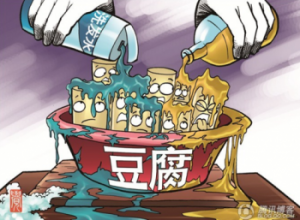Sep 13 2012
Poisoning Citizens Is Alright if We Make a Decent Profit
In recent years, shocking reports that implicate almost every product on Chinese grocery store shelves have been released. After the deaths of six children and reports of some 300 000 more falling ill from food contamination, public scrutiny has fallen other food products.

Recent investigation into Chinese food manufacturing has unearthed the use of a plethora of chemical additives.
The Chinese food scandals serve to provide a prime example of business ethics. A business, in a basic sense, is an institution created and driven by incentives to make a profit, not to benefit society. Business remains inclined to rely on figures, which explicitly state costs and revenue. However, numbers can dehumanize resources and markets to the point that sick children become irrelevant if products are making a profit.
Constantly, businesses abandon social responsibility for profit- taking production shortcuts to save on costs, and doing anything to stay competitive in the marketplace. Provided, profit is the incentive for business to exist, so a lack thereof would effectively halt markets and society. From a purely economic standpoint, as The Social Responsibility of Business is to Increase Profits has, CSR will contribute to inflation and ultimately harm consumers. However, when profits are made at the expense of consumers, a business will lose sight of who is giving them profit and a market for their goods, as well as how sustainable their business really is.
So the main ethical contention China’s food scandals pose? Should we favour on short-term goals such as quarterly earnings over stakeholder and societal benefit?
http://rendezvous.blogs.nytimes.com/2012/06/21/from-milk-to-peas-a-chinese-food-safety-mess/